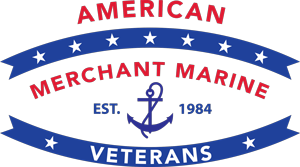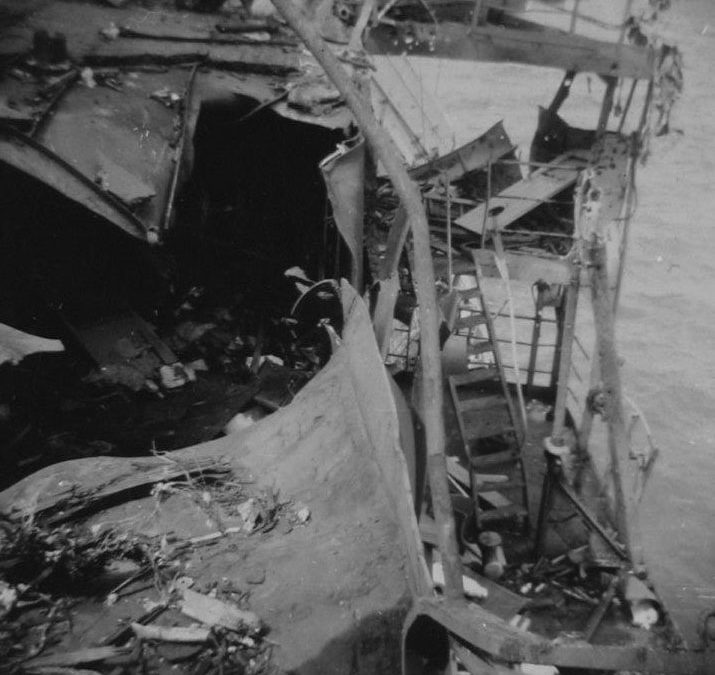Leonard Row was just a 15-year old boy when he was turned away by a U.S. Navy recruiter because of his age. However, he was advised that the Maritime Service would happily accept him. Leonard then signed-up to train at the Catalina Island facility, which prepped young men to crew the merchant vessels that carried food, ammunitions, and other vital supplies to Allied forces worldwide.
Leonard was serving on the Mary A. Livermore early in his seagoing career when an incident occurred that changed his life forever. On May 28th, 1945, while anchored near Okinawa, a Kamikaze crashed into the Livermore. Eleven men died and seven were severely injured, including Leonard. One of the dead was his close friend, Robert E. Blake.
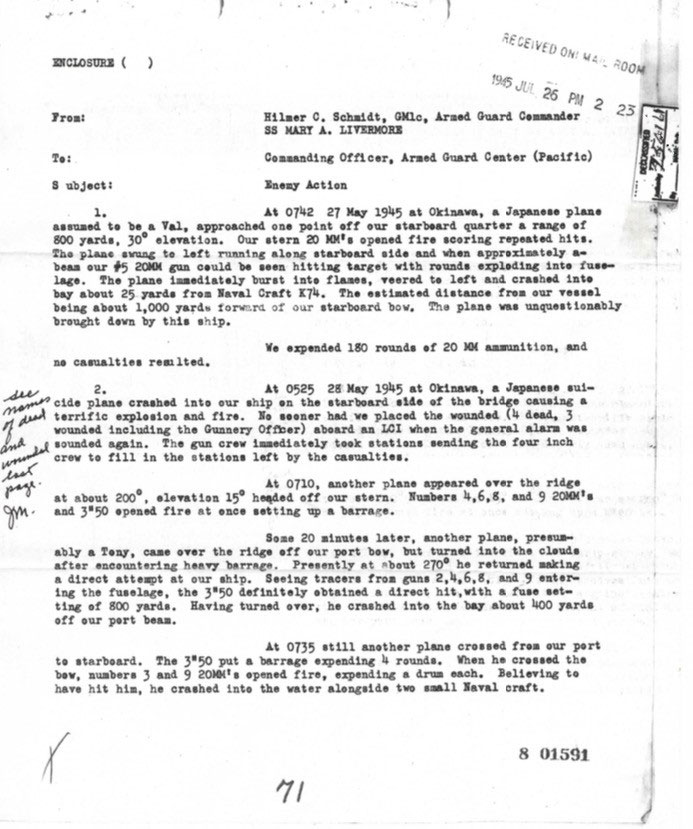
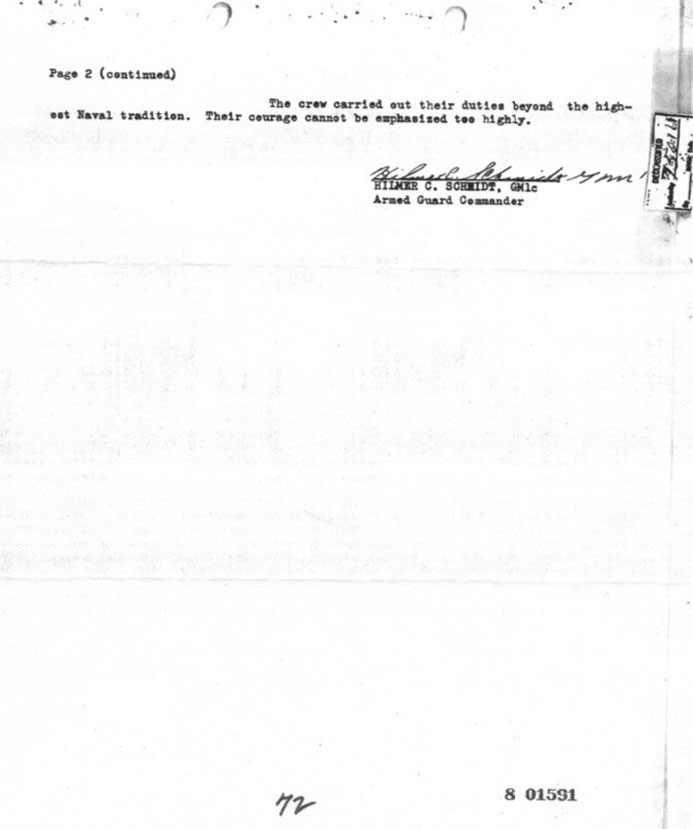 Legislation has been around for several sessions of Congress with the intent of righting this injustice by providing our Merchant Marine Veterans some form of monetary payment to compensate for this lifetime of loss. The current bill is H.R. 154: The Honoring Our WWII Merchant Mariners Act of 2017. If enacted, this would provide our seagoing heroes with a lump sum payment of $25,000.
Please ask your Congressperson to support H.R. 154. It’s time.
Click HERE to print out a form letter to mail to the House Committee on Veterans’ Affairs asking for support of H.R. 154.
Click HERE to help Leonard Blake gain recognition.
Legislation has been around for several sessions of Congress with the intent of righting this injustice by providing our Merchant Marine Veterans some form of monetary payment to compensate for this lifetime of loss. The current bill is H.R. 154: The Honoring Our WWII Merchant Mariners Act of 2017. If enacted, this would provide our seagoing heroes with a lump sum payment of $25,000.
Please ask your Congressperson to support H.R. 154. It’s time.
Click HERE to print out a form letter to mail to the House Committee on Veterans’ Affairs asking for support of H.R. 154.
Click HERE to help Leonard Blake gain recognition.
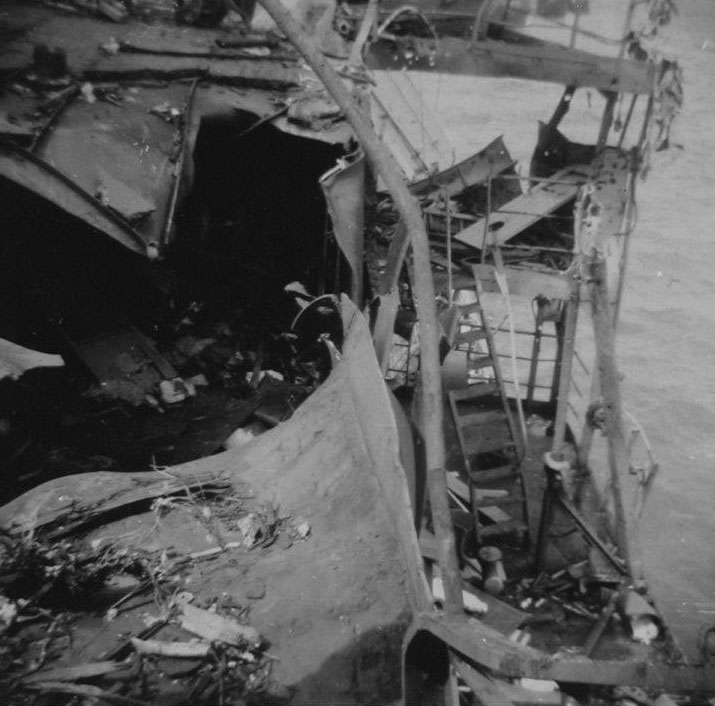 S/S Mary A. Livermore following Kamikaze attack
S/S Mary A. Livermore following Kamikaze attack
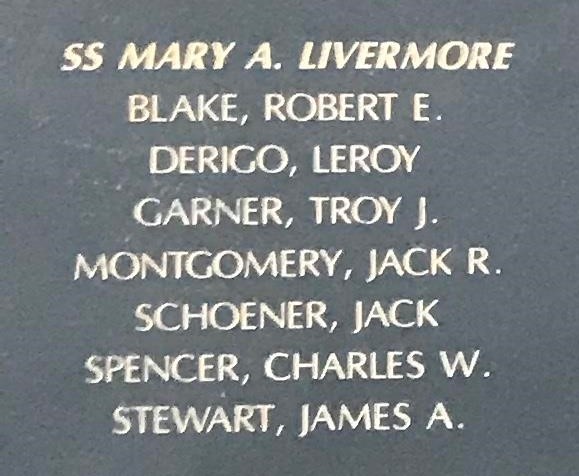 Names of those lost from the Livermore, etched into the Walls of Honors at the American Merchant Marine Veterans Memorial in San Pedro, CA.
Names of those lost from the Livermore, etched into the Walls of Honors at the American Merchant Marine Veterans Memorial in San Pedro, CA.

 Legislation has been around for several sessions of Congress with the intent of righting this injustice by providing our Merchant Marine Veterans some form of monetary payment to compensate for this lifetime of loss. The current bill is H.R. 154: The Honoring Our WWII Merchant Mariners Act of 2017. If enacted, this would provide our seagoing heroes with a lump sum payment of $25,000.
Please ask your Congressperson to support H.R. 154. It’s time.
Click HERE to print out a form letter to mail to the House Committee on Veterans’ Affairs asking for support of H.R. 154.
Click HERE to help Leonard Blake gain recognition.
Legislation has been around for several sessions of Congress with the intent of righting this injustice by providing our Merchant Marine Veterans some form of monetary payment to compensate for this lifetime of loss. The current bill is H.R. 154: The Honoring Our WWII Merchant Mariners Act of 2017. If enacted, this would provide our seagoing heroes with a lump sum payment of $25,000.
Please ask your Congressperson to support H.R. 154. It’s time.
Click HERE to print out a form letter to mail to the House Committee on Veterans’ Affairs asking for support of H.R. 154.
Click HERE to help Leonard Blake gain recognition.